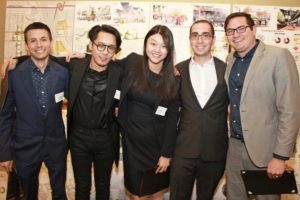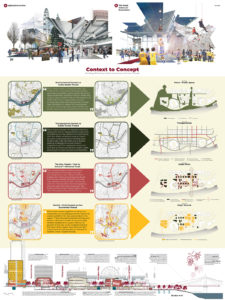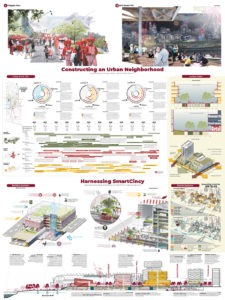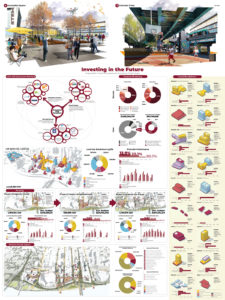Harvard Graduate School of Design degree candidate Matthew Macchietto (MLA ’19) and a team of collaborators from the Massachusetts Institute of Technology (MIT) have been named winners of the 2019 Urban Land Institute (ULI) Student Competition, an ideas competition that provides graduate students the opportunity to devise a comprehensive design and development scheme for a large-scale site in an urban area.

The selection was announced on April 4 in Cincinnati, where the competition’s four finalist teams presented to the competition jury. The winning team is awarded a prize of $50,000, while each finalist team receives $10,000. The four finalist teams were chosen from 90 teams representing more than 40 universities in the United States and Canada.
This year’s competition involved the redevelopment of a site in Cincinnati comprising portions of a highway, the central business district, and the downtown riverfront along the Ohio River, as the ULI notes on the competition website. Teams were asked to evaluate the potential to deck the highway and combine it with adjacent parcels, with the goal being to connect the parcels and create a vibrant, pedestrian-oriented, sustainable, mixed-use neighborhood.
The winning scheme from the MIT-Harvard team, “The Cincy.Stitch,” repositions a pivotal stretch of waterfront not as the city’s edge, but as the center of a connected region. Through four threads—culture and history, public realm, transportation, and new economies—the proposal strategically expands the site and creates connections to break down barriers across geography and time. Together, these four threads weave an urban tapestry rich in history but geared to the future, creating a 24-hour neighborhood bustling with city dwellers and a center for new commerce that connects citizens across the region socially and physically.
Macchietto joined four students from MIT to form the winning team: Joshua Brooks, Shiqi Peng, Alan Sage, and Zhicheng Xu. Dennis Pieprz, design critic in urban planning and design, served as an academic adviser along with MIT’s Eran Ben-Joseph.
“The MIT-Harvard team stood out because it demonstrated the greatest cohesiveness by an interdisciplinary team to solve an urban challenge requiring multiple disciplines,” said Alex J. Rose, ULI Hines Student Competition jury chairman and longtime ULI Foundation governor. senior vice president of Continental Development Corporation in El Segundo, California. “The team had a very clear strategy, an achievable plan, a clear and creative financial model, and a presentation that strongly supported and illustrated their plan.”
Read more about Macchietto and his collaborators’ winning project via the ULI competition announcement.



